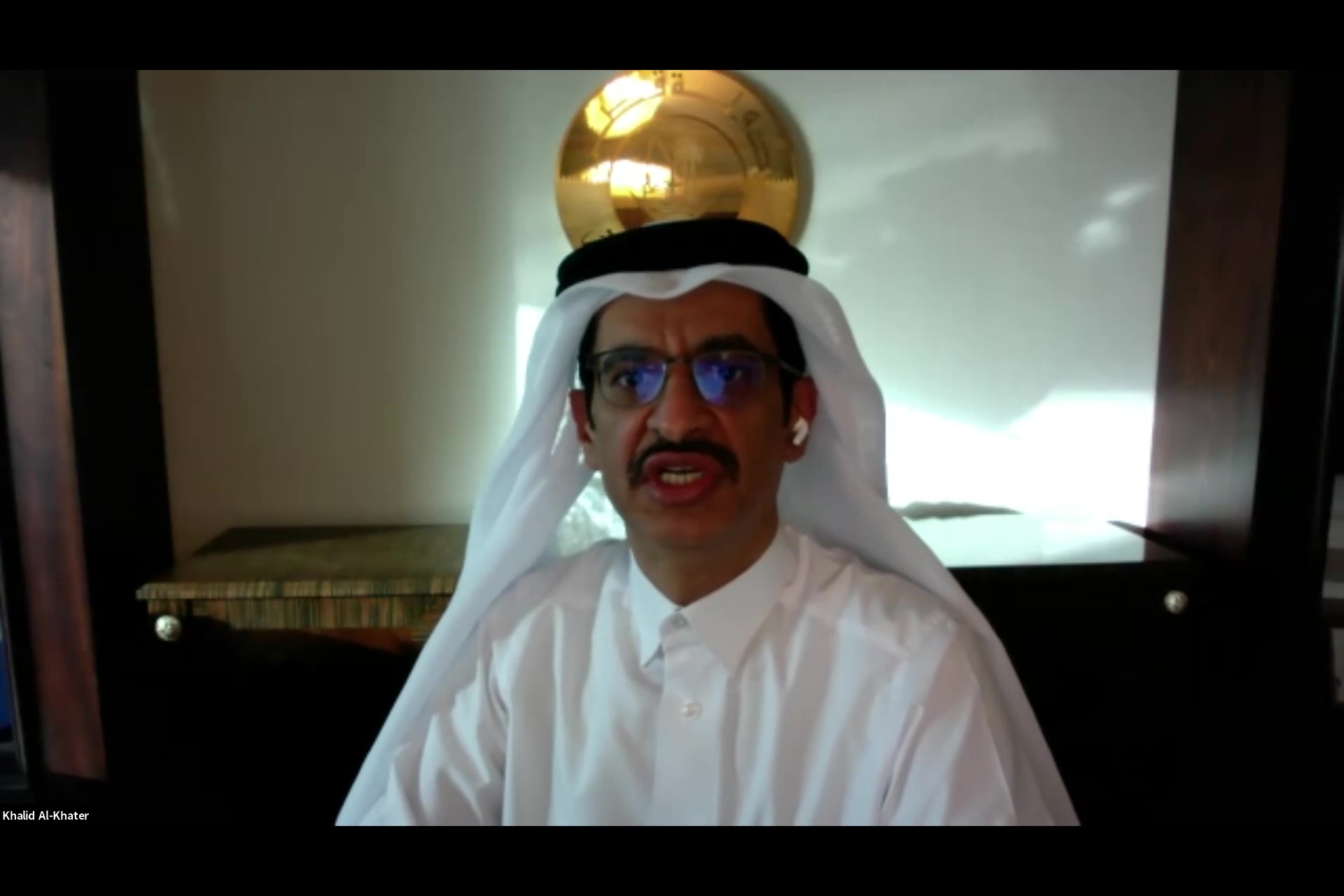
Event Recap: Maintaining A Strategic U.S. Presence in the Persian Gulf
On May 26, the American Security Project held a virtual event with Dr. Khalid Al-Hater, Director of Planning and Policy Department at the Ministry of Foreign Affairs of Qatar, Lieutenant General Daniel Christman, USA (Ret), Colonel David Des Roches, and Brigadier General Stephen Cheney, USA (Ret.) to discuss the importance of remaining engaged with GCC states to meet the shifting security challenges in the Middle East.
BGen Cheney opened the event acknowledging that President Biden’s announced withdrawal of all American troops from Afghanistan by September 11, 2021 –which is proceeding ahead of schedule—raised concern that the U.S. may further diminish its presence in the Middle. He recognized that while some have called for a total withdrawal of U.S. military forces from the Middle East, it remains in the U.S.’s interest to maintain a military presence, even if a lighter one, embedded within the security structure of the Gulf Cooperation Council (GCC) member states. He highlighted current security concerns in the region such as the JCPOA nuclear discussions with Iran, the potential resurgence of ISIL in Iraq and Syria, and instability in Yemen allowing the nation to become a base for terrorist operations.
Dr. Al-Khater noted that Gulf countries are a key energy center and that events within the Gulf have security implications for the wider Middle East region. He went on to underscore Qatar’s role in securing regional security and unity, specifically highlighting Qatar’s support for the JCPOA and recent call for a sustainable resolution for the Israel-Palestine conflict. Dr. Al-Khater also reiterated the need for continued U.S. engagement and partnership with Qatar and other Persian Gulf states in order to promote stability and peace in the region.
Lieutenant General Daniel Christman followed by emphasizing the Gulf’s critical importance in U.S. interests, stating that the U.S. will always have an interest in the energy-rich and vital Gulf even as national security concerns move to focus on the rise of China. He mentioned Secretary of State Blinken and President Biden’s previous statements stressing engagement and reconnecting with American allies in the Middle East. He concluded by sharing future areas of interest in the region: U.S. decisions for troops in Iraq and Syria, the JCPOA agreement, and global extremist threats in Yemen.
Colonel David Des Roches shared two perspectives on security in the Persian Gulf. The American perspective focuses on the pivot to Asia. He noted that the U.S. does not have any naval bases in the Indian Ocean except for in the Persian Gulf, which means continued engagement in the region will be vital to the pivot toward Asia. He also noted that the American perspective includes tunnel vision focusing on Iran, rather than being inclusive of all threats in the region. Then he elaborated on the second GCC perspective that focuses on Iran’s threat to regional stability. This perspective sees the Shia crescent aligned with Iran as a long-term plan for increased Iranian presence and influence in the region while expressing concern over the proliferation of Iranian proxy forces in the region and Iran’s ballistic missile capacity. He concluded that “The U.S. may not be interested in the Gulf but the Gulf is interested in the U.S.”
In response, Dr. Al-Khater noted Qatar’s forward-thinking role in the region, but said there needed to be greater dialogue and shared responsibility for ensuring sustainable peace and stability in the region. Colonel Des Roches shared that Qatar had a proven history of being dedicated to peace in the Gulf and around the world. Lieutenant General Christman noted Qatar’s presence as a hub for international business and conferences.
When asked about the recent GCC blockade, Dr. Al-Khater reported that the GCC maintained its deep cooperation on security issues. Colonel Des Roches stated that while many GCC states are challenged to find a distinct national identity, the blockade allowed Qatar to develop into a stronger entity on its own.
In response to a question on climate change’s impact on the region, Colonel Des Roches underscored the role climate change has in fueling the Arab spring and increasing instability in the region. BGen Cheney continued this line noting that worsening droughts contributed to the rise of ISIS in Syria.
Lieutenant General Christman noted the importance of the outcome of the current JCPOA negotiations to the future security of the region. Colonel Des Roches highlighted that the JCPOA is not a treaty and that could cause complications in the future.
Watch the full recording here:
Additional Resources from the American Security Project:
Perspective – The Case for U.S. Strategic Engagement in the Persian Gulf
U.S. Military Presence in the Middle East





